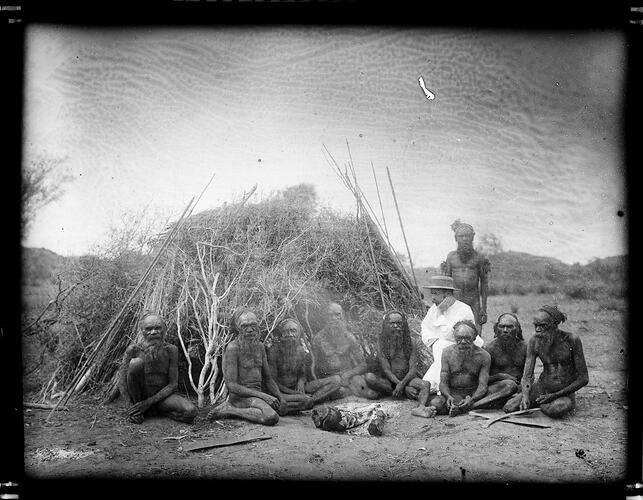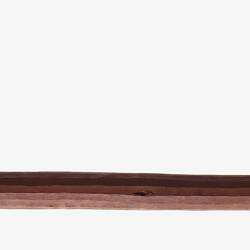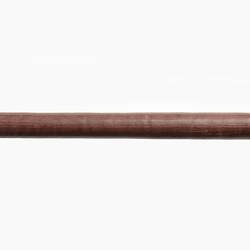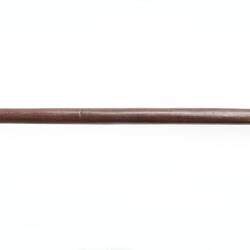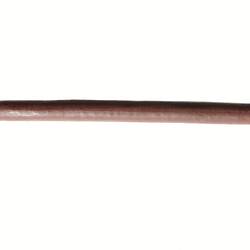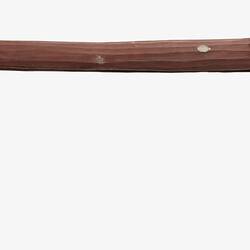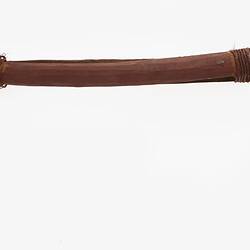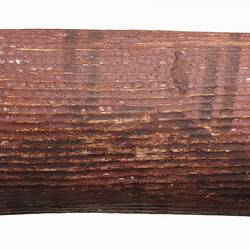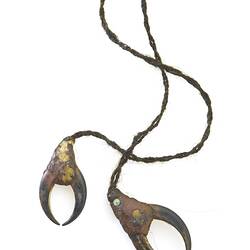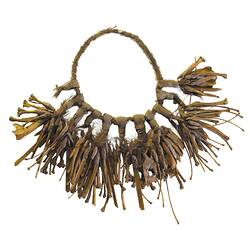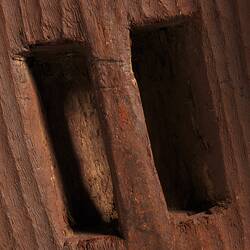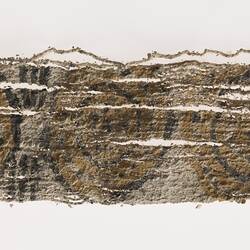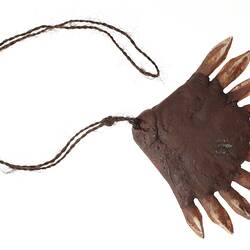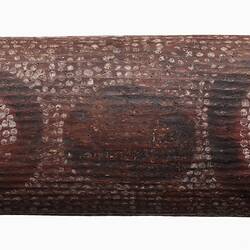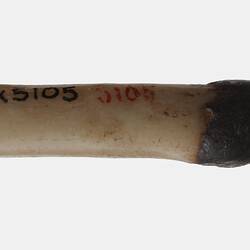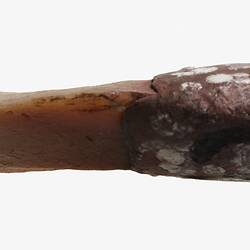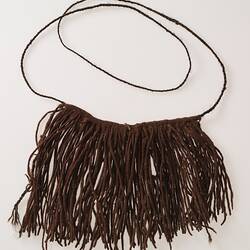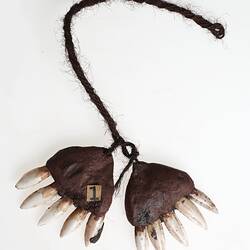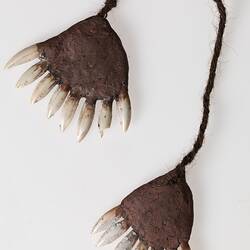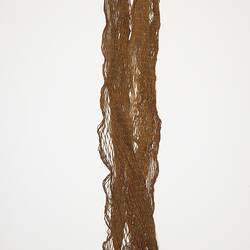Francis James Gillen (1855-1912) was born on 28 October 1855 at Little Para, South Australia to Irish-born parents. Gillen joined the South Australian postal service in the late 1860s and began working on the overland telegraph line, at Charlotte Waters in 1875, before being appointed Alice Springs telegraph station master in 1892. It was during his time at Charlotte Waters that Gillen first developed an interest in the Arrernte people living in the area and was made Special Magistrate and Aboriginal sub-protector.
Gillen garnered enormous respect from Aboriginal people in 1891 after prosecuting a case against Mounted Constable William H. Willshire for the murder of two Aboriginal men. Three years later Gillen hosted the Horn Scientific Expedition to Central Australia whereupon he met the biologist Walter Baldwin Spencer. Gillen and Spencer struck up a productive friendship and went on to collaborate in ethnographic and anthropological research. It was during the summer of 1896-1897 that Spencer and Gillen photographed and recorded in immense detail many of the secret/sacred ceremonial rituals of the Arrernte (Aranda) which had been revealed to Gillen in response to his action against of Willshire.
Spencer and Gillen's publications - The Native Tribes of Central Australia (1899) and The Northern Tribes of Central Australia (1904) - had a tremendous influence on the development of sociology and anthropology across the world and their detailed descriptions of Aboriginal custom, material culture, and beliefs (including the concept of the Dreaming or altyerre) continue to be discussed and debated (Peterson 2006; Batty et al 2013). In addition to these more formal anthropological texts, a number Gillen's diaries and his letters have also been posthumously published and exhibit his fine wit, sense of humour and intelligence (despite the occasional use of what is now deemed insensitive language).
Gillen sold much of his ethnographic collection to the National Museum of Victoria (Museum Victoria) in 1899 and donated more material following his expedition across the continent with Spencer in 1902. The collections consist of over 510 items. Gillen left Central Australia in 1899 and after a long period of ill-health died at Woodville (South Australia) on 5 June 1912.
References
Batty, Philip, Lindy Allen, and John A Morton, eds. The Photographs of Baldwin Spencer. Carlton, Vic.: Miegunyah Press, 2007.
Gibson, Jason. "Addressing the Arrernte: FJ Gillen's 1896 Engwura Speech." Australian Aboriginal Studies 1 (2013): 57-72.
Gillen, Francis James. Gillen's First Diary 1875. Wakefield Press, 1875.
Gillen, Francis James. Gillen's Diary: The Camp Jottings of F. J. Gillen on the Spencer and Gillen Expedition Across Australia, 1901-1902. Adelaide: Libraries Board of South Australia, 1968.
Gillen, Francis James, D.J. Mulvaney, Howard Morphy, and Alison Petch. "My Dear Spencer": The Letters of F.J. Gillen to Baldwin Spencer. Hyland House Publishing Pty Limited, 2001.
Peterson, Nicholas. "Visual Knowledge: Spencer and Gillens Use of Photography in The Native Tribes of Central Australia." Australian Aboriginal Studies 1 (2006): 12-22.
More Information
-
Keywords
-
Authors
-
Article types
